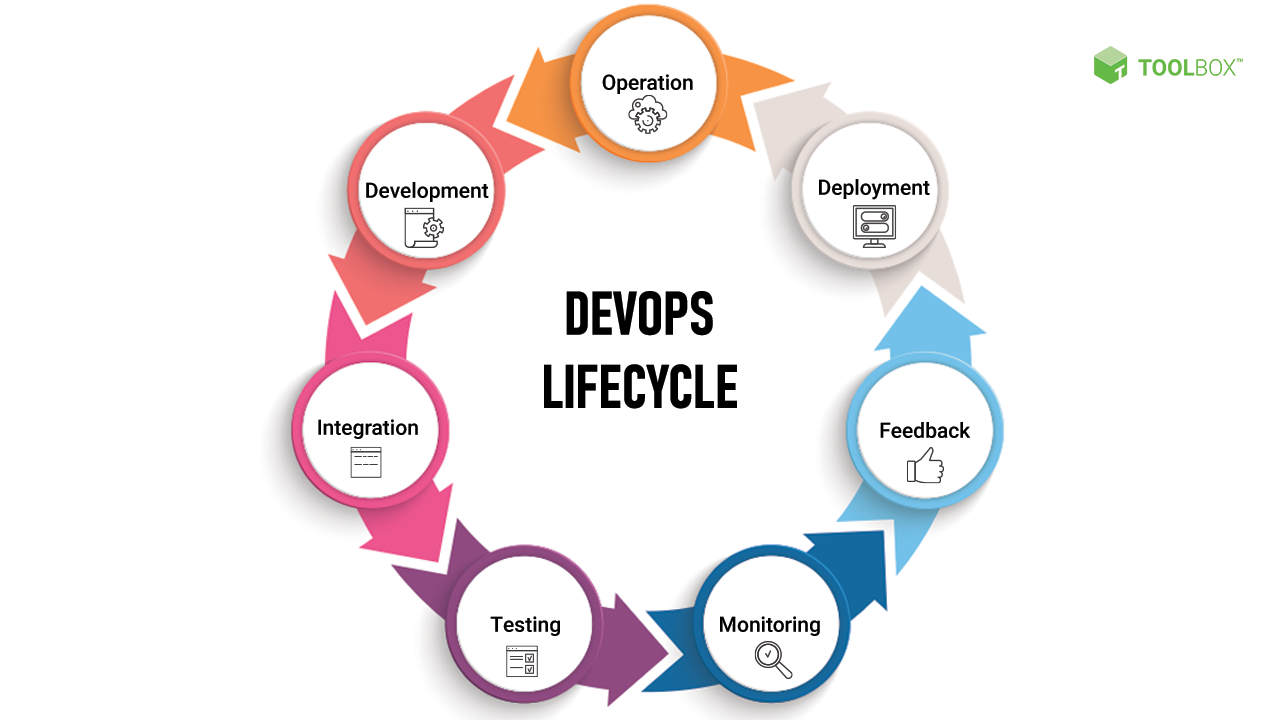Industry News
How to avoid network and server infrastructure issues during the development cycle

Mathieu Duperré, CEO, Edgegap
Regardless of whether you’re an indie developer or a AAA publisher, making games is never simple. Taking a game project from the initial concept to launch is a huge undertaking, especially when you begin incorporating multiplayer and social elements. Despite eye-watering budgets and huge teams of developers, countless games fall flat on release.
Thankfully, many of the common obstacles can be easily avoided and disruption to your release timeline kept to a minimum if you’re aware of the potential network and server infrastructure issues at key stages of development: the main development cycle, pre-launch, the launch period itself and once the game has launched.
Problems during the main development cycle
Some of the most common problems you’ll encounter on the tech side of the main development cycle can be the result of:
- Imperfect or hurried CI/CD pipelines. It can take days to push a new release for testing when you should be able to launch a few releases every day.
- Dev teams taking on too much in-house rather than seeking outside assistance (netcode, game engine, backend services).
- Trying to save funds through open-source projects that eventually become outdated, unsupported during your dev cycle or ends up in engineering money pits.
- Developers waiting until post-launch to focus on important elements such as crossplay.
- QA teams lacking constant access to the game build.
Any of these sound familiar? If so, it might be time to rethink your core strategy and whether you’re adhering to the DevOps methodology. Do you have a structured approach or are you lurching leftfield and drifting off course?
While developing your own netcode and game engine in-house can seem appealing, it’s important to consider the potential risks that might emerge further down the road. If problems with your netcode or a proprietary game engine present themselves at a particularly busy stage of development, you’ll wish you’d have outsourced them.
Considering where you can offload certain aspects of development to external partners can help reduce your team’s workload and improve their efficiency so they can focus on more pressing matters.
Mistakes to avoid just before the launch
One of the biggest mistakes you can make just before launch? Underestimating your CCU (concurrent users worldwide) and employing a low percentage buffer of around 10%. Misjudging your CCU is going to put too much strain on your servers and overall backend services and is one of the most common reasons players experience crashes around the launch. Similarly, don’t underestimate the number of regions you’ll need servers in too. A global game launch requires an equal distribution of worldwide servers to avoid latency issues.
When it comes to servers, it’s always best to plan ahead and scale back, rather than the other way around. Prioritise network partners who offer pay-as-you-go options for server access, so if you do need to scale back (or up) you can do so easily. This should always be the preferred option and will prevent you from being charged for servers you’re not using. It’s important to be aware of the risks associated with overestimating, as this can lead to studios signing long-term contracts and ultimately being overresourced.
Finally, one issue that can cause developers and studios a lot of trouble is data protection regulation laws. I’ve heard plenty of horror stories about studios turning a blind eye to privacy laws such as the General Data Protection Regulation (GDPR) and the California Consumer Privacy Act (CCPA). Make sure you’ve checked the specific rules regarding data collection in your region as early as possible to avoid a frantic rush of paperwork towards the end of development or, worse, incurring costly fines.
Obstacles on launch day
It can be easy to think that you’ve made it through the worst once you reach launch day, but this is usually the stage where major issues can suddenly appear. You may notice a bombardment of negative responses from Twitter, Steam and other platforms addressing critical issues with the game – make sure you address these rather than ignoring them. These responses can be important indicators of how the players are responding to your game and if you’ve factored their feedback in the development phase.
Once the game has launched, you will have the clearest indicator of how many servers you’ll need to support the players. This is where your planning will prove to be correct or wide of the mark if you’d reserved say 1000, but you only need 200.
A 24/7 support plan is an important consideration when the game is live, this will enable rapid fixes to negate as many disruptions as possible. A low-cost DDoS solution is also a crucial facet to bear in mind. A server orchestrator will help developers manage influx of traffic along with capturing crucial data that can be incorporated into the game as part of the observability phase.
Post-launch issues
Now that your game is in the world, there can be a strong temptation to introduce a plethora of new elements to the game to enhance the player experience. While on the face of it these are good ideas, new mods or minor updates can prove problematic and contain major bugs. Responding to these new issues can be distracting and take weeks or even months to solve.
On top of this, if you haven’t properly planned earlier in the process, major updates to your game servers could potentially lead to maintenance issues and significant downtime for your player base. If players have a bad experience on launch, they’ll likely just move on to the next best thing. When EA launched Battlefield 2042, server issues, loading times and game-breaking bugs plagued the game. Within months, player numbers dropped to fewer than 1,000 concurrent players on Steam.
Of course, there are a number of ways to circumvent these issues. It is crucial to choose a backend that can support multi-versioning A/B testing and facilitate rolling updates without outages. You’d be hard-pressed to find a gamer who enjoys an unplayable game. Automation can also help in the production pipeline, this includes deploying quick fix updates and upgrades which will reduce the human error factor.
Another consideration that is often overlooked is outsourcing for network and platform providers to remove a large in-house team dedicated to DevOps or Engineering. This is intensive work that will take up the time of staff, and outsourcing is a viable option and it makes perfect sense for smaller studios, especially to pursue this option purely from a cost-saving perspective.
Making edge count
Edge computing is often overlooked by game developers, but it can alleviate many of the issues described here, particularly around server provisioning and latency issues. Edge technology brings computation and data storage closer to the source of the data, placing it at the edge of the network where performance gain is most optimal. This reduces unnecessary travel and drastically speeds up the process resulting in close to a lag-free experience.
If you’re looking at cross-play for your game, infrastructure requirements become more complex. Edge computing helps to negate some of the most nagging delay issues that come with playing across different platforms. As cross-play becomes more of a consideration for developers, edge computing along with automation can come to be one of the solutions to some of the associated problems. Developers should consider the automation part of the equation when planning their game project. It becomes even more vital when you add more latency-reliant elements to a game.
Fail to plan, plan to fail
There is no one size fits all approach to game development or the challenges associated with it. But taking some of the steps outlined above can help negate potential issues and lessen their impact, preventing total derailment of a game before it even launches.
Small steps like putting your trust in external partners or looking at technologies like Edge computing to squeeze as much performance out of your game as possible might seem small, but their impact on development can’t be underestimated.
Planning for different eventualities at key stages of development will go a long way in ensuring your game is the best it can possibly be at launch. This will give your game the best chance at becoming a lasting hit, not a flash in the pan that’s marred by server issues or bugs.
The logistical side of creating a game might not always be glamorous or exciting, but it’s unavoidable. If your development pipeline is hit by server issues, you’ll be glad you planned ahead.
Powered by WPeMatico
Gaming Laboratories International
GLI Promotes Patrick Cottingham to Director of Client Services, North America

Gaming Laboratories International (GLI) has promoted Patrick Cottingham to Director of Client Services, North America. Previously, he served as Senior Manager of Client Services. Prior to commencing his career as an engineer with GLI, he served with the US Air Force.
Cottingham’s dedication to his clients was clearly evident both inside and outside of GLI. He transitioned to the Client Services team where he progressed and built a team laser focused on providing the very best customer service where his and his team’s clients have benefited from his engineering and gaming experience.
Ian Hughes, GLI Chief Revenue Officer, said: “We are thrilled to announce Patrick’s well-deserved promotion to Director of Client Services for North America. Patrick leads a team of dedicated and committed client services representatives who ensure our clients receive the best service during their compliance journey with GLI.”
The post GLI Promotes Patrick Cottingham to Director of Client Services, North America appeared first on Americas iGaming & Sports Betting News.
Blueprintx
Zingo Bingo Launches “Your Era” Nostalgia Series Featuring Kerry Katona and Pat Sharp

Zingo Bingo Launches “Your Era” – A Social-First Nostalgia Series for 2026
Zingo Bingo has officially unveiled Your Era, a new short-form social media content series celebrating iconic throwbacks, shared nostalgia and the cultural moments that defined generations. The series launches in February 2026 and will roll out weekly across TikTok, Instagram, Facebook and YouTube.
Designed to strengthen Zingo Bingo’s identity as a home of nostalgic fun, Your Era focuses on authentic conversation rather than traditional promotional content. The format highlights music, fashion, technology and pop culture milestones that shaped each guest’s personal journey.
Kerry Katona and Pat Sharp Headline Series One
The first confirmed guests include Kerry Katona, singer and media personality best known from Atomic Kitten, and Pat Sharp, the iconic radio and TV presenter associated with classic UK entertainment shows. Additional celebrity names will be revealed throughout the year.
Each episode features five themed nostalgia segments crafted to spark memories, conversation and emotional connections among viewers.
What to Expect from “Your Era”
Every guest takes part in recurring throwback features designed to boost engagement and relatability:
- The Memory Bag – Guests reveal five nostalgic items and share the stories behind them
- Flashback Files – A rapid-fire interview covering music, fashion, tech and cultural trends
- Mixtape Memories – Guests curate throwback tracks for the official Your Era playlist
- Taste of the Past – Sampling retro sweets and snacks while rating nostalgia levels
- Yesterday’s News – A humorous headline-guessing game using real throwback media stories
The series aims to tap into the growing popularity of nostalgia-driven digital content while positioning Zingo Bingo as a community-led entertainment brand.
Built by Kinetic Digital and Blueprintx
Your Era has been developed by Zingo Bingo’s operators, Kinetic Digital, in collaboration with long-term creative partner Blueprintx. Blueprintx has previously supported digital and television campaigns for Kinetic Digital brands including Prime Casino and Slingo.
The production strategy prioritises shareable, short-form content optimised for social discovery and influencer amplification, with episodes distributed across dedicated platform pages as well as guest channels.
A Strategic Play for Community Engagement
Jack Watson, Brand Manager at Zingo Bingo, said the series reflects the brand’s commitment to fun, familiarity and connection.
“Your Era is about celebrating the music we replayed, the fads we cringe at and the memories that still make us smile. It’s designed to bring people together through shared nostalgia while reminding audiences that bingo is about enjoying those moments collectively.”
Series one will feature six guests throughout 2026, with new weekly segments designed to drive audience engagement and repeat viewership.
The post Zingo Bingo Launches “Your Era” Nostalgia Series Featuring Kerry Katona and Pat Sharp appeared first on Eastern European Gaming | Global iGaming & Tech Intelligence Hub.
Industry News
Ex-Paysafe VP Justin Fraser takes chief revenue officer role at Yaspa to drive global growth

Yaspa, the renowned fintech focusing on instant payments and identity solutions, today reveals the appointment of Justin Fraser as its Chief Revenue Officer.
Fraser becomes part of Yaspa’s executive team during a crucial period of global growth. He has more than 20 years of commercial leadership experience in the payments ecosystem, having occupied senior leadership positions at notable industry companies like Cybersource, Visa, and Paysafe.
Having a career centered on maneuvering through intricate payment environments, he offers knowledge in rapidly expanding, regulated sectors such as iGaming, cryptocurrency, and financial technology.
As the new CRO, Fraser will manage Yaspa’s worldwide commercial strategy, concentrating on expanding the company’s Intelligent Payment platform, which integrates open banking with AI-powered customer insights, throughout the UK, Europe, and North America.
Yaspa CEO James Neville said: “We are thrilled to welcome Justin to the team during this period of rapid acceleration. His deep expertise in navigating complex regulatory environments and his proven track record in scaling payment solutions are invaluable assets as we expand our footprint in the US and beyond. Justin’s appointment further strengthens our leadership as we continue to help businesses lower costs, grow revenues, and enhance financial compliance through open banking.”
Justin Fraser said: “Yaspa is at the forefront of the shift toward real-time payments. The company’s unique blend of open banking and AI-verified insights solves genuine friction for merchants, particularly in industries like iGaming. I am excited to join such an innovative team and look forward to driving the next phase of our commercial growth globally.”
Fraser will collaborate closely with the recently strengthened US team, which includes the newly appointed US Sales Lead, Peter Kula, and US Senior Solutions Manager, Jackson Esoda.
This statement comes after a year of significant growth for Yaspa, highlighted by increasing its workforce from 15 to 75 employees and successfully securing a $12 million investment round spearheaded by Discerning Capital. In this timeframe, the firm broadened its international presence with new ventures in Atlanta and Leeds, while winning esteemed honors such as the 2025 Payments Award for Real-Time Payments Innovation and a spot on the CB Insights Top 100 Fintech list.
The post Ex-Paysafe VP Justin Fraser takes chief revenue officer role at Yaspa to drive global growth appeared first on Eastern European Gaming | Global iGaming & Tech Intelligence Hub.
-

 Amusnet5 days ago
Amusnet5 days agoWeek 7/2026 slot games releases
-

 Aphrodite’s Kiss5 days ago
Aphrodite’s Kiss5 days agoLove on the Reels: Slotland Introduces “Aphrodite’s Kiss”
-

 Denmark6 days ago
Denmark6 days agoRoyalCasino Partners with ScatterKings for Company’s Danish Launch
-

 Baltics6 days ago
Baltics6 days agoEstonia to Reinstate 5.5% Online Gambling Tax From March 1
-

 Booming Games6 days ago
Booming Games6 days agoTreasure Hunt Revival — Booming Games Launches Gold Gold Gold Hold and Win
-

 Brino Games5 days ago
Brino Games5 days agoQTech Games integrates more creative content from Brino Games
-

 ELA Games6 days ago
ELA Games6 days agoELA Games Unveils Tea Party of Fortune — A Magical Multiplier Experience
-

 Bet Rite6 days ago
Bet Rite6 days agoSpintec Expands into Canada with Bet Rite



















